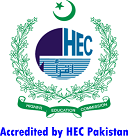Global Power Transition: Where do Major European States Stand?
DOI:
https://doi.org/10.56384/jes.v40i2.350Abstract
This paper focuses on the actors in the new emerging Cold War. In the last century, the world was experiencing a phase of geopolitical rivalry between two major powers, commonly referred to as the Cold War. After surviving fifty years of proxy warfare, sanctions, arms race, and security concerns between the two dominant worldwide factions, the struggle finally came to an end. The USA exerted significant influence over the western bloc, while the Soviet Union dominated the eastern bloc. The global geopolitical scenario has seen substantial transformations in the twenty-first century. The global landscape has shifted towards a multipolar configuration, resulting in conflicts that have highly unorthodox characteristics. China, being a major player, actively engages in world politics and is enjoying a fair share in a market economy and the development of infrastructure. Amid the ongoing global quest for dominance, Europe is experiencing an emergence of new dynamics, each with its unique alliances and ideas. This article aims to analyze the potential for collaboration and conflict between the major players in the emerging global power transition during the early stages of this Cold War.















